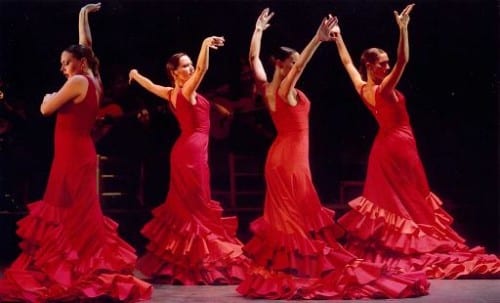In the first of an occasional column, Jack Gaioni discusses Spanish ladies in music
FROM 1969-1974 no musical group had more Top 10 hits or sold more concert tickets than the rock group Three Dog Night.
Listen to any classical rock music station and at some point, you are likely to hear at least one rendition of such hits as: Joy to the World, Eli’s Coming, Momma Told Me Not to Come, Shambala, Easy To Be Hard, An Old Fashion Love Song, etc. One particular hit song (No.5 on the 1974 charts); Never Been To Spain has a chorus which proclaims:
Well I never been to Spain
But I kinda like the music
They say the Ladies are insane there
And they sure know how to use it
They don’t abuse it
Never gonna lose it
I can’t refuse it…
The passage is curious. It implies that the singer/songwriters are especially intrigued by ‘Spanish Ladies’. They imagine Spanish Ladies are out of the ordinary, are spirited, with a reputation that precedes them.
Clearly, the singer/songwriter believes the Spanish fairer sex has a disposition – an attitude – that makes them unique. Is it that they are unpredictable? ‘Crazy’ in a good way? Is it that Spanish Ladies are uniquely confident? Alluring? Scheming? Passionate? Three Dog Night is not the first in music to ask these questions about Spanish women. Consider some of the following examples…
In 1952 – pre-Elvis and pre-rock n’roll – singer Eddie Fisher had a smash-hit called Lady of Spain. Fisher (an ex-hubby of femme fatale Elizabeth Taylor) was a “crooner” who, like Frank Sinatra and Bing Crosby, represented a musical genre given to an emphatically sentimental singing style. In the Lady of Spain, the singer/ songwriter pleads:
Lady of Spain I adore you!
Right from the night I first saw you
My heart has been yearning for you
What else could any heart do?
Lady of Spain, I’m appealing
Why my lips should be concealing
All that my eyes are revealing
Lady of Spain, I love you!
No mistaking the passionate allure of a particular Spanish Lady in this refrain. Clearly the singer/songwriter is seduced and inflamed with love, captivated and infatuated by this ‘Lady of Spain’. He is not simply in love, but rather totally infatuated with a ‘culturally specific’ woman.
Indie pop-rock, a contemporary musical genre that originated in the United Kingdom in the mid-1980s, combines alternative rock with the folk music of the 50s and 60s. Indie (independent) pop-rock is considered more melodic, less abrasive and less angst-ridden than pure alternative rock. Ingrid Michaelson is a prolific Indie singer/songwriter whose 2008 album, Be O.K., received a lot of exposure on the Billboard charts. One particular cut on that hit album, called Lady of Madrid, boasts that:
I am a LADY in Spain
I sing a haunting refrain
I am a lady from Mars
And I can unscrew the stars
I can be anything that I see
I can do anything my heart tells me to do…
The Spanish Lady stands apart from other women while projecting an innate confidence and an illuminating aura. Omnipotent, independent and dynamic, this Indie-pop description of a Spanish Lady insists there is something compelling about Spanish femininity.
This phenomenon of focusing compositions on the Spanish fairer sex is by no means contemporary. An early 18th century English naval drinking song called Spanish Ladies is still popular within the British Royal Navy. The song laments the fact that during the Peninsula War, the British sailors must return to England leaving behind their Spanish lovers:
Farewell an adieu to you fair Spanish Ladies
Farewell an adieu to you Ladies of Spain
For we’ve received orders to sail for old England
An hope very shortly to see you again
Let every man drink up his full bowl
And let us be jolly and drown melancholy
Farewell to you fair ladies of Spain!
The Spanish have, throughout history, been characterized as people of emotion – whether saints, artists, conquistadors etc. The role of Spanish women in music might also be included under this rubric. But the obvious questions remain: Why is it that so many troubadours, musicians and song-smiths have chosen “Spanish Ladies” as central subjects in their craft? Is it an accident? What is it about the fairer sex in Spain which draws out this propensity? The questions are rhetorical…. or are they?






